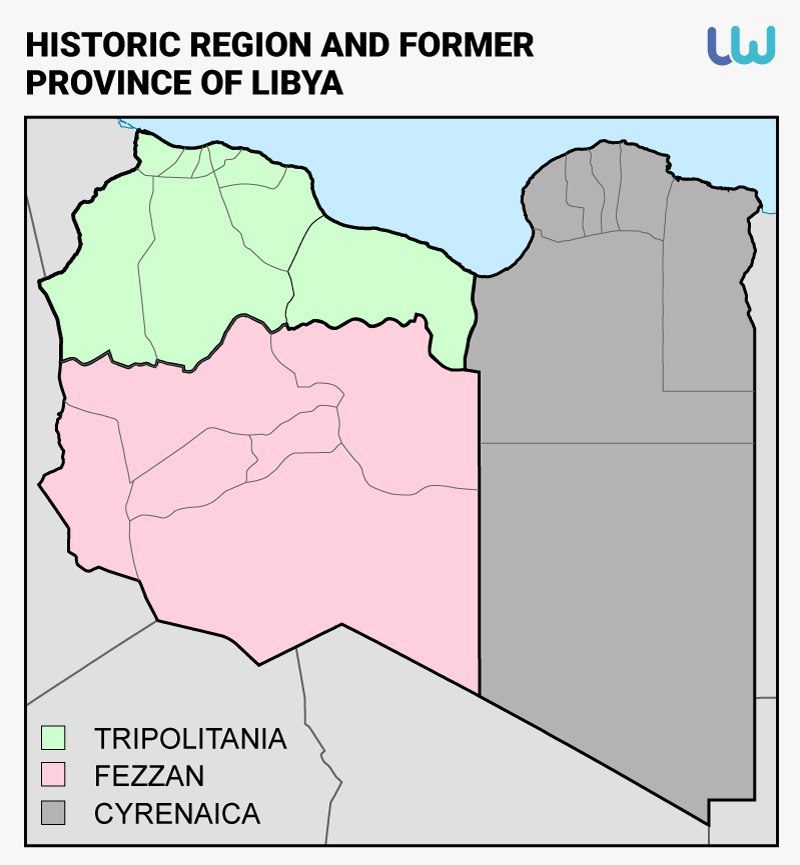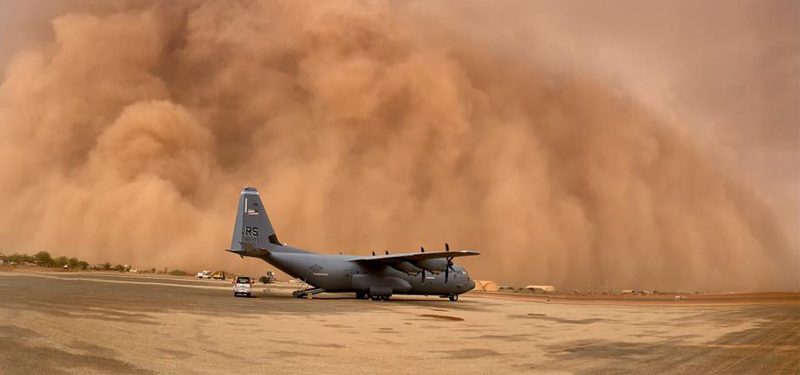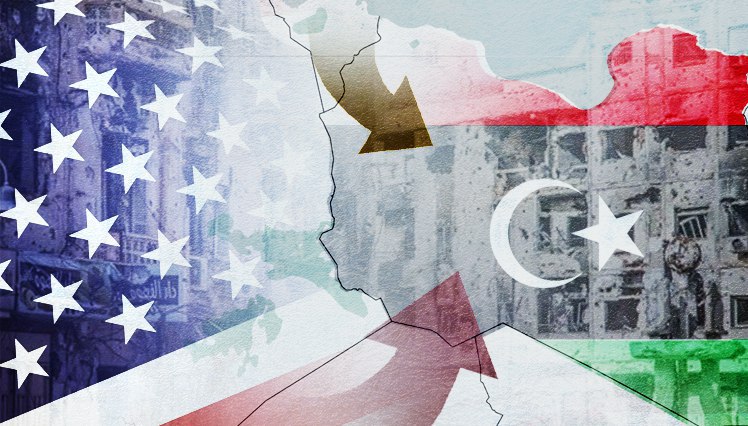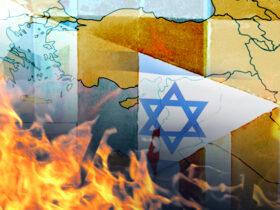The US military has intensified its activity, mulling a return to Libya. Following accusations against Russia and appeals to Moscow and Ankara to stop supporting the parties to the Libyan conflict, the US expressed its readiness to strengthen its military presence in neighboring Tunisia.
NEWS: Commander reaffirms partnership with #Tunisia
—–
“Many of our African partners are under siege from malign actors & terrorist networks. We remain committed to working together to deliver solutions to common challenges.” – Gen. Townsend pic.twitter.com/oGt9xwoauq— U.S. Africa Command (AFRICOM) (@USAfricaCommand) May 29, 2020
US activity in Tunisia may mean seeking to build the right infrastructure to send “military advisers” to neighboring Tripoli. However, there is another direction in which the Americans can turn – south.
The oil issue
The attention of the world is focused on the events in northern Libya. However, what is happening in the south is most directly related to the future of the country. While in the east of Libya a significant part of the oil fields is located in the north-west of Cyrenaica (“the oil crescent”), in the western part of the country, the fields are deep in the south.

Technically, all oil fields are now controlled by the Libyan National Army of the renegade General Khalifa Haftar.
Among these fields is the largest field of El Sharara, where 300,000 barrels per day were previously produced. In January, as a result of “popular protests”, oil production in Libya and its transportation abroad were stopped. In fact, the reason was the desire of the Khalifa Haftar to push the GNA after the talks in Moscow and the Berlin conference on Libya towards a stance more acceptable to the General.
The fact is that although the oil was under his control, he could not sell it. The only organization that can legally sell Libyan oil is the National Oil Corporation (NOC), headquartered in Tripoli. The money from the oil sales went to that company, which it then distributed. Some went eastwards, but much of it settled in Tripoli, which was controlled by Haftar’s opponents.
So, Haftar had oil, but the lion’s share of it went to his opponents. Also, the local tribes were dissatisfied with the settling of money in Tripoli. So they supported Haftar, hoping that they could get more money from oil rents.
Here one should keep in mind that the LNA has regular military units as well as militia groups, which, especially in the south, have changed their loyalty more than once.
In the case of El Sharara, the blocking of oil was carried out by the local group “Fezzan Rage Movement”. In 2018, they were already blocking the field without the help of Haftar. At that time, the locals demanded money from GNA Prime Minister Fayez Sarraj to develop the south. Sarraj promised 1 million Libyan dinars, but the money did not reach Fezzan.
In mid-May, rumors surfaced that oil production from the Sharara field might resume. Despite the tactics of pressure on the NOC, the shutdown of oil production in this field only led to the fact that the money stopped coming at all. It is impossible to smuggle large volumes of oil from this field – the pipeline goes to the port of Zawiya (near the border with Tunisia), which is controlled by GNA forces. It is possible to transport oil by gas tankers to Niger, but it is impossible to send it to the ports of eastern Libya controlled by Haftar.
In theory, oil production in El Sharara may resume, but it will only become stable when there is a force capable of controlling the fields and transporting them to Zawiya.

US interests
Does it seem like the United States has anything to do with any of this?
In October 2019, The United States Institute of Peace (USIP) – a US government funded federal institution – released the report “Understanding Libya’s South Eight Years After Qaddafi”. The authors stipulated that “Developments in Fezzan have proven central to key US interests: oil and fighting terrorism, as well as irregular migration, which disproportionately affects US European allies”.
USIP’s recommendations to the US government contain overt hints of the need to gain control over oil and train local security forces:
“Local-level security should be prioritized, and security forces need training. The lack of security in Fezzan is dramatically impacting the population. From a long-term perspective, the training of security forces is crucial. As security is considered a basic need of any society, police should see themselves as part of the community they serve. This is important for addressing the root causes of terrorism and preventing radicalization, particularly among those who have received indiscriminate, violent treatment by security forces and border officials. This goal cannot be achieved through technical training alone; developing police skills and knowledge related to community-oriented policing is the only way to counter radicalization and terrorism, as well as safeguard freedoms that are under attack.
To keep the flow of oil, peace must be built. The oil production has largely kept apace over the last eight years, despite the chaos in the county. Continuing this trend is central to US interests, especially after the recent attacks in Saudi Arabia. Libya’s southern Sahara is the source of the country’s wealth and contains the largest oil and gas fields. So, building stability in the south is not only important for local interests, but also has wider implications for the global oil market”.
Sounds familiar, doesn’t it? This is the same policy that the US pursues in eastern Syria: it provides training for local “security forces” – YPG/PKK, which is justified by the fight against terrorism. At the same time, American troops together with militants control oil fields.
Congressional Research Service report on Libya, published in April 2020, says that “Libya’s natural resources and economic potential may provide future opportunities for strengthening US-Libyan trade and investment ties”, while noting that the US should think about “whether and when to return US personnel to Libya on a permanent basis” and “how to respond to the actions of other third parties.”
Activity in Niger
In addition to Tunisia, the US military is active on the territory of another Libyan neighboring state, Niger.
Niger has become the most important parts of the US military and logistical infrastructure in Africa. In November 2019, the US Air Force began reconnaissance flights from the newest base of the US African Command – Air Base 201, five kilometers from the city of Agadez in the center of Niger. The US considers this base the most important in the system of antiterrorist security in Africa. The US also has an Air Base 101 in Niamey.
These bases allow receiving military transport aircrafts, which means the transfer of troops. US strike drones are also flying from these bases. Including those that strike Islamists in southern Libya.

Airmen stationed at Nigerien Air Base 101 in Niamey, Niger, and Nigerien Air Base 201 in Agadez.
US Army Special Forces and CIA specialists are deployed in Niger (circa 800 troops). As the Tehran Times reports: “The largest number of US bases on the continent can be found in Niger”. Some of them are placed near Libyan border – even in the northern part of the country, where Islamists and remnants of Tuareg separatist groups fight.
US perspectives in Southern Libya
The oil fields in south-western Libya, including El Sharara, are in close proximity to the US outposts in Niger. They and the aviation hub in Agadez may be used if the US decides to replicate the Syrian experience in Libya to seize oil fields.
This would result in the deployment of American troops in Tunisia with the prospect of protecting oil terminals in the port of Zawiya. The source of oil and the final point of export will be controlled by the Americans. Thus, the US’ strengthening its presence in Tunisia may be explained by the preparedness to secure oil.
In this case, the US would control the field, which could be a source of revenue for the Government of National Reconciliation while Haftar is holding the “oil crescent”. Thus, those who will control Fezzan’s oil will gain full power over the GNA.
In southern Libya, the US could also find potential allies. Former Qaddafists are active in the region, and Niger has long been their main base. It should be understood that these forces are suspicious of both the GNA and Haftar, despite sometimes allying with them. In fact, these are the same tribal groups, which in spite of their “Qaddafism” can also take the side of the United States, if they promise them the necessary preferences.
The US can also rely on Toubou or Tuareg groups, both of which are closely linked to their tribesmen in Chad, Mali and Niger and would like to maximize their interests.
In general, southern Libya, with its oil reserves and unresolved social and ethnic problems, potential tendencies for separatism of the same Tuareg or Tubu, is a unique field for foreign intelligence services. The activities of ISIS and other terrorists in the Sahel could serve as a basis.
The possibility that must be considered
The strategy described above is just one possibility. However, it would be important for all parties to the conflict in Libya and the powers involved to assess this possibility of US seizure of key elements of oil infrastructure outside the “oil crescent”. The US is capable of doing so, and that action may be game changing.
Of course, one cannot talk about the absolute identity of the conflicts in Syria and Libya, but there are certain similarities as well.
Against the backdrop of the Coronavirus pandemic, the demand for oil fell, which made the issue of Libyan oil inflow to the world market less urgent than before.
However, in Syria, the US is not holding oil for pressure on markets, but for pressure on Damascus, as well as on Ankara – money from oil goes to the structures of the Kurdish separatists.
In time, Libyan oil may become interesting for the US again. Besides, it is a tool of control over GNA. Through the GNA, it’s a means of pressure on Turkey, whose influence in the region the US hopes to curb.
Of course, we should not forget that in order to implement this strategy, the US needs to secure the support of France, which supports Haftar and has a serious influence on the authorities of Niger. At the same time, France, much like the US, is interested in removing Turkey from the region. And one should not forget Donald Trump’s desire to “take the oil” in any conflict in the Middle East.

















Leave a Reply